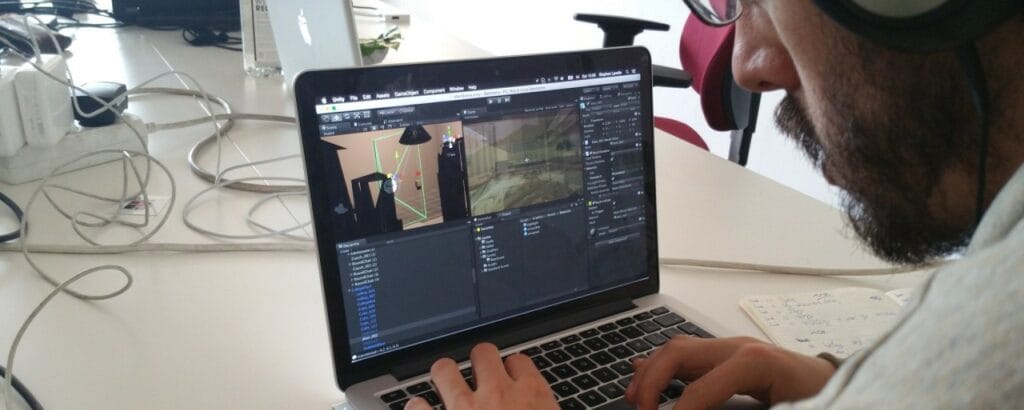Unity has just made a huge move that could change the future of game development forever. The company has officially decided to cancel the Runtime Fee, a highly controversial pricing policy introduced last year. For many developers, this decision is a relief. But let’s dive into what led Unity to this point, why this cancellation is important, and how it impacts developers moving forward.
In 2023, Unity announced a new Runtime Fee that would charge developers every time a game was installed once it had crossed specific revenue and install thresholds. The runtime fee would apply even if the game was being reinstalled on a new device or after being deleted. This caused outrage among developers, especially indie devs who saw this as a massive financial hit.
For developers, this wasn’t just about money. It also raised concerns about how much they could trust Unity moving forward. Many felt the policy would harm their businesses and create unnecessary stress in an already challenging industry. Indie developers, in particular, were vocal about how this could end up destroying smaller projects.
Developers would have to either absorb these costs or pass them on to players. The backlash was immediate, with many developers voicing their frustrations on social media platforms like Discord and GitHub. Some, such as the creators of Slay the Spire 2, even switched to Godot and vowed never to return to Unity. This move by Unity not only cost them money but also damaged their reputation in the gaming community.

After months of intense backlash and community pressure, Unity’s leadership team, led by President Marc Whitten and CEO Matt Bromberg, made the decision to cancel the Runtime Fee. In a statement, Bromberg said, "After deep consultation with our community, customers, and partners, we’ve made the decision to scrap the runtime fee, effective immediately."

This decision to cancel the controversial runtime fee comes as part of Unity's broader effort to rebuild trust with the game development community. While this marks the end of the fee policy, it's not the end of Unity’s pricing changes.
So, what happens now that the runtime fee is gone? Unity is returning to a more traditional seat-based subscription model. This means developers who use Unity’s Pro or Enterprise versions will now pay based on the number of people using the software. However, starting in 2025, Unity will be increasing the costs for these subscriptions. Unity Pro subscribers will face an 8% annual price increase, while Unity Enterprise subscribers will see a 25% hike.
Despite the cancellation of the Runtime Fee, Unity will still be introducing pricing changes to ensure that they can continue investing in the development of their engine. The company has said that Unity Personal will remain free, and they’re even increasing the revenue threshold for Unity Personal users from £100,000 to £200,000, giving indie devs more room to grow.

Unity Pro and Unity Enterprise subscribers will need to adapt to these changes, but at least the fee policy won’t be tied to how many times a game is installed. Unity’s 2024 pricing changes come into effect on January 1, 2025, and are expected to bring in more revenue for Unity, which, in turn, will help them deliver better services to the development community.
The decision to cancel the Unity Runtime Fee is a step in the right direction, but it doesn’t automatically fix the trust issues. Many developers feel that Unity has shown itself to be unreliable, particularly after such a significant policy shift. Youtuber Jason Weimann and others in the game dev community have pointed out that Unity needs to work hard to rebuild its reputation if it hopes to retain its user base.
The good news is that Unity is still one of the most popular engines in the world, with many games created using the engine. Even with the controversy, Unity remains competitive with Unreal Engine, as shown by the 2024 State of the Gaming Industry survey. The removal of the Runtime Fee is a big step toward rebuilding that trust, but Unity will need to prove that it won’t make any similar mistakes in the future.
For now, Unity has reassured developers that any future pricing changes will be made with more transparency and input from the development community. For example, developers using Unity Personal can continue using that version of Unity without worrying about hidden fees. This is a key shift from the uncertainty created by the controversial runtime fee.
For indie developers, the cancellation of the Runtime Fee means they can continue to use Unity without worrying about surprise costs. Unity Personal will remain free, and with the increased annual revenue and funding ceiling, smaller indie developers have more breathing room to scale their projects without being hit with unexpected fees.

In addition, Unity has confirmed that the much-hated Unity splash screen will remain customisable for developers using Unity Personal, which is great news for creators who want to present their games professionally. The splash screen has long been a point of contention, but it seems Unity is listening to feedback and making sure developers have more control over how their games are presented.
While Unity’s decision to cancel the runtime fee is a clear attempt to make amends, the question remains: can they win back the trust of the development community? For now, Unity remains a powerful and flexible game engine, with many developers likely to keep using it for their projects. However, some developers have already moved on to other engines like Godot, and it may be tough for Unity to get them back.
Still, developers will no longer have to worry about paying fees per install, and the new subscription model gives them more predictability moving forward. Unity’s planned changes, such as Unity Pro and Unity Enterprise price increases, will kick in later this year, but the removal of the Runtime Fee is effective immediately. This could be a sustainable business for Unity—if they handle it right this time.
For now, developers and gamers alike can breathe a sigh of relief as Unity moves into a new chapter, free from the controversy of the past year.
Let us know what you think about Unity’s decision to cancel the Runtime Fee over at SAVEGAME. Will you stick with Unity, or has the damage already been done? Whether you're an indie dev or a studio using Unity Pro, we’d love to hear your thoughts!